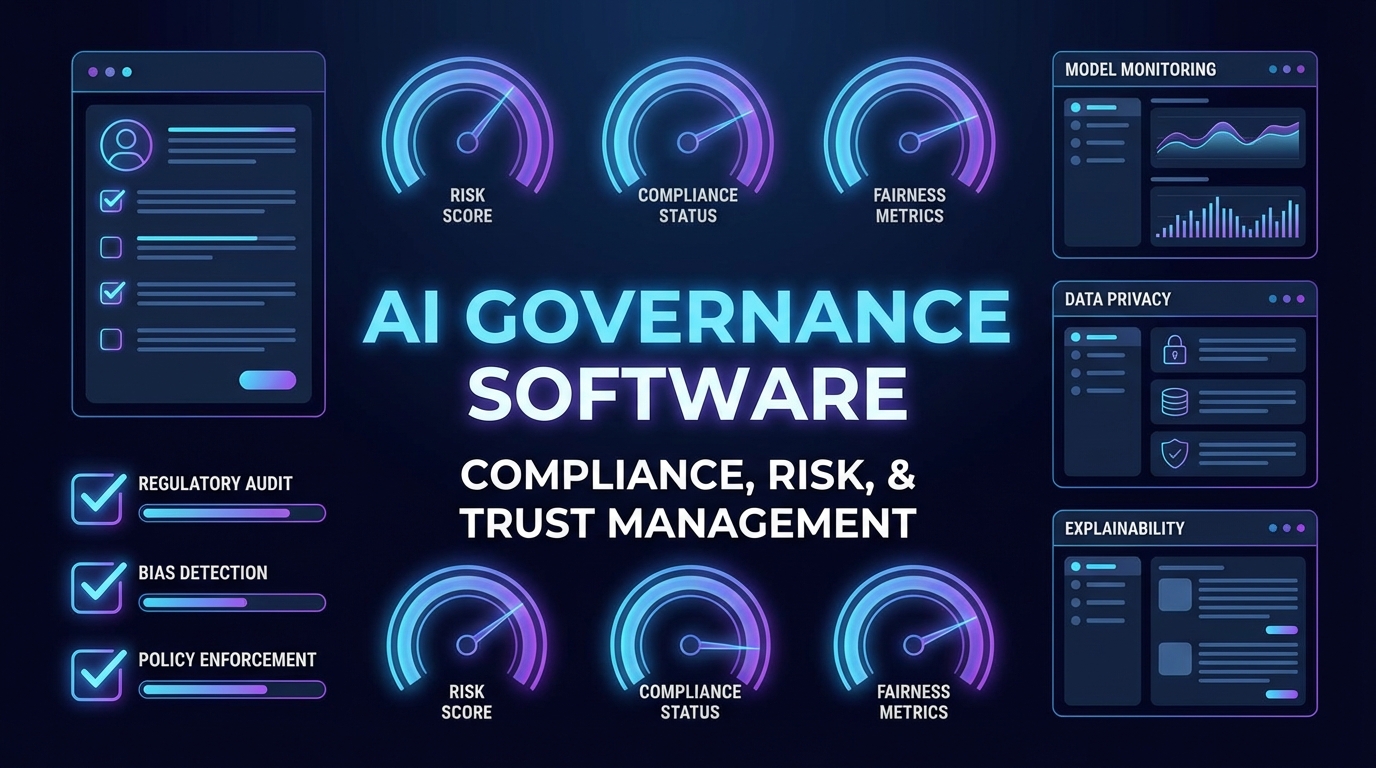AI Governance Software
Tools to Streamline Your Compliance Journey

Scaling AI responsibility requires the right toolkit. From open-source frameworks to fully managed enterprise GRC platforms, here is a roundup of the top players.
1. AI Verify (Singapore IMDA)
An open-source (Apache-2.0) testing framework that validates performance against international principles. It's consistent with EU and OECD guidelines. Try it in our Playground!
2. Credo AI
A fully managed platform featuring a "Use Case Registry" and "Policy Packs." It empowers stakeholders to monitor risks across data and models at a massive scale.
3. Modulos AI
A Zurich-based startup focusing on automated documentation and centralized artifact monitoring. Ideal for on-premise or VPC deployments.
4. IBM Watson OpenScale
A plug-and-play monitoring service for technologies like AWS SageMaker, focusing on fairness and transparency in real-time.
5. DataRobot
An end-to-end ML platform where governance is a core differentiator. It features automated compliance documentation at the click of a button.